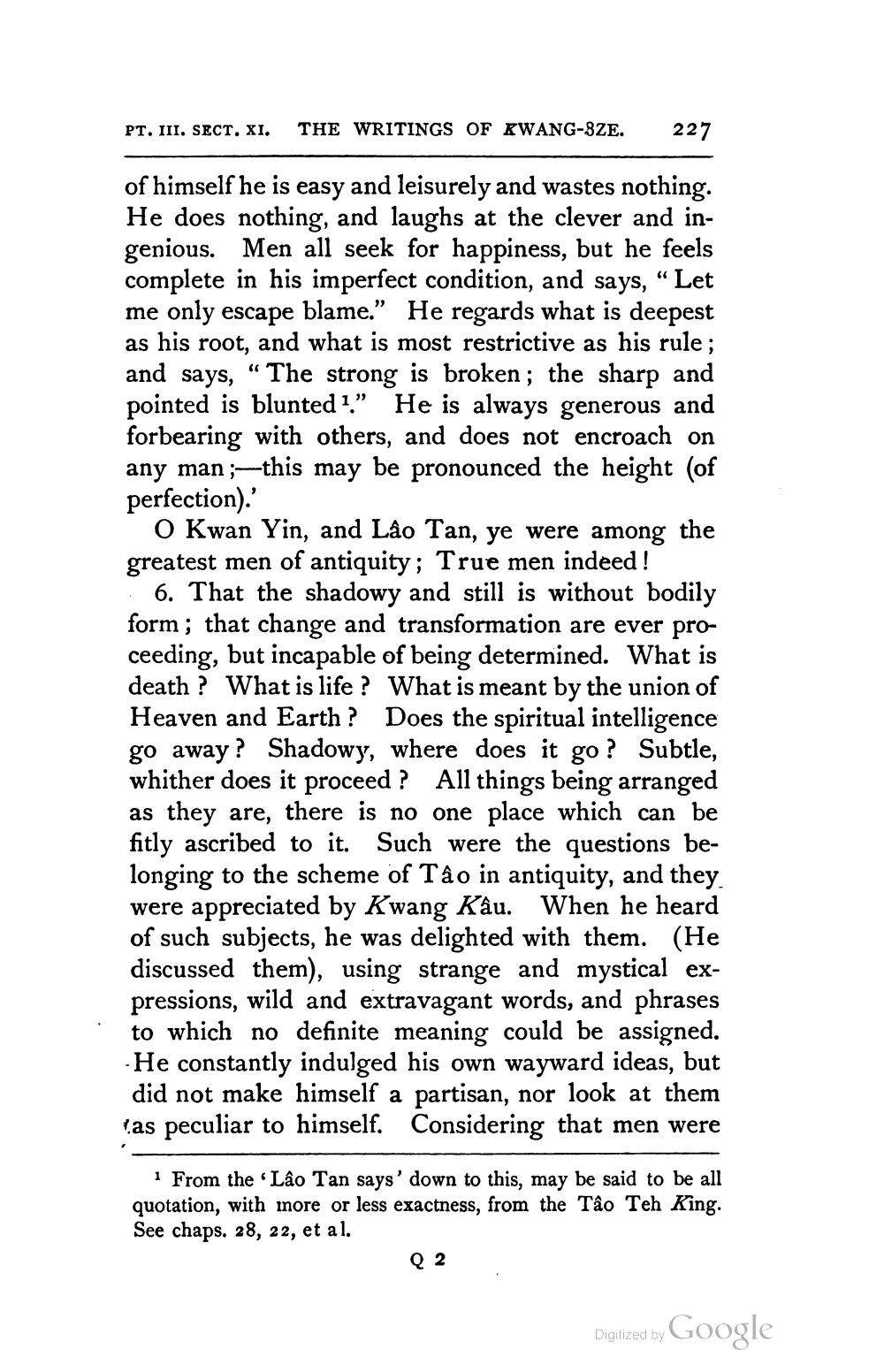________________
PT. III. Sect. XI. THE WRITINGS OF KWANG-BZE.
227
of himself he is easy and leisurely and wastes nothing. He does nothing, and laughs at the clever and ingenious. Men all seek for happiness, but he feels complete in his imperfect condition, and says, “Let me only escape blame.” He regards what is deepest as his root, and what is most restrictive as his rule; and says, “The strong is broken ; the sharp and pointed is blunted 1.” He is always generous and forbearing with others, and does not encroach on any man ;-this may be pronounced the height (of perfection).'
O Kwan Yin, and Lão Tan, ye were among the greatest men of antiquity; True men indeed!
6. That the shadowy and still is without bodily form; that change and transformation are ever proceeding, but incapable of being determined. What is death ? What is life? What is meant by the union of Heaven and Earth? Does the spiritual intelligence go away? Shadowy, where does it go ? Subtle, whither does it proceed? All things being arranged as they are, there is no one place which can be fitly ascribed to it. Such were the questions belonging to the scheme of Tâo in antiquity, and they were appreciated by Kwang Kâu. When he heard of such subjects, he was delighted with them. (He discussed them), using strange and mystical expressions, wild and extravagant words, and phrases to which no definite meaning could be assigned. - He constantly indulged his own wayward ideas, but
did not make himself a partisan, nor look at them las peculiar to himself. Considering that men were
1 From the Lao Tan says' down to this, may be said to be all quotation, with more or less exactness, from the Tâo Teh King. See chaps. 28, 22, et al.
Q2
Digitized by Google




